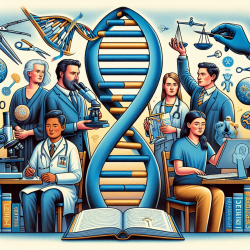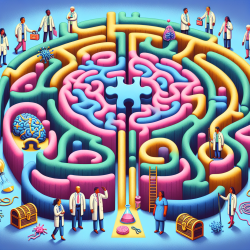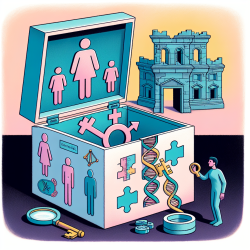Introduction
In the realm of speech-language pathology, particularly when working with veterans, understanding the nuances of traumatic brain injuries (TBIs) and their comorbidities is crucial. The recent research article, "Plasma biomarkers associated with deployment trauma and its consequences in post-9/11 era veterans: initial findings from the TRACTS longitudinal cohort," provides groundbreaking insights that can transform therapeutic practices.
Understanding the Research
The TRACTS study delves into the relationship between plasma biomarkers and deployment-related trauma in veterans. By analyzing a cohort of 550 post-9/11 veterans, the study identifies key biomarkers associated with inflammation and neurodegeneration. These biomarkers include interleukin 6 and 10, tumor necrosis factor ?, and glial fibrillary acidic protein (GFAP), among others.
The study's findings reveal that inflammatory markers are significantly higher in veterans exposed to close blasts, while GFAP levels are consistently lower in those with blast exposure and mild traumatic brain injury (mTBI). These biomarkers are linked to severe psychological symptoms, offering a new lens through which practitioners can assess and treat veterans.
Implementing Research Outcomes
For practitioners in speech-language pathology, integrating these findings into therapeutic practices can lead to more effective outcomes. Here are some ways to implement the research:
- Biomarker Monitoring: Incorporate biomarker analysis into assessments to better understand the physiological impacts of trauma on veterans.
- Personalized Therapy Plans: Use biomarker data to tailor therapy plans, addressing both cognitive and emotional aspects of trauma.
- Collaborative Care: Work closely with medical professionals to monitor biomarker levels and adjust treatment plans accordingly.
Encouraging Further Research
While the TRACTS study provides a solid foundation, there is a need for further research to explore the long-term effects of biomarkers on therapy outcomes. Practitioners are encouraged to engage in or support research initiatives that expand on these findings, particularly focusing on:
- Longitudinal Studies: Conduct studies that track biomarker changes over time and their impact on therapy effectiveness.
- Comorbidity Exploration: Investigate how various comorbidities influence biomarker levels and therapy outcomes.
- Technological Integration: Develop and utilize advanced technologies for more precise biomarker analysis.
Conclusion
The insights from the TRACTS study offer a transformative approach to treating veterans with deployment-related trauma. By leveraging biomarker data, practitioners can enhance therapeutic outcomes, providing veterans with the comprehensive care they deserve. As we continue to explore the potential of biomarkers, the future of therapy for veterans looks promising.
To read the original research paper, please follow this link: Plasma biomarkers associated with deployment trauma and its consequences in post-9/11 era veterans: initial findings from the TRACTS longitudinal cohort.










